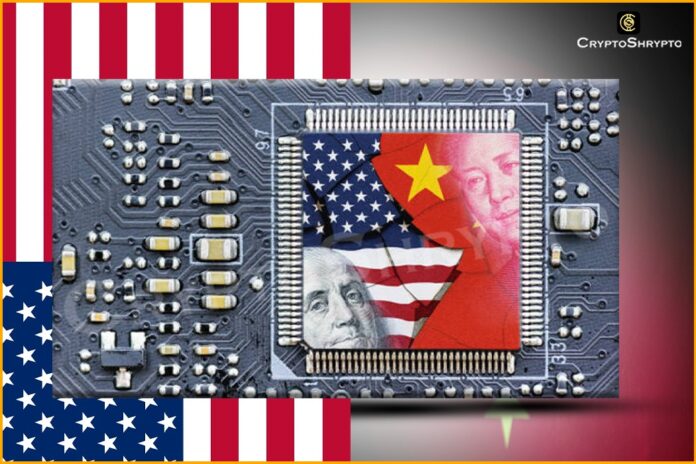On October 17, the United States Department of Commerce’s Bureau of Industry and Security (BIS) released a notice that expands existing export controls on artificial intelligence (AI) chips to China. The BIS stated that these newly released rules “reinforce” the restrictions put in place in October 2022 to limit China’s access to “high-end chips critical for military advantage.”
Under Secretary of Commerce for Industry and Security, Alan Estevez, emphasized the importance of these updated controls, stating, “Export controls are a powerful national security tool, and the updates released today build on our ongoing assessment of the U.S. national security and foreign policy concerns related to China’s military-civil fusion and military modernization.”
One significant update includes the introduction of a “performance threshold” for chips that can be exported from the United States. While previous rules primarily targeted high-performance chips from leading companies like Nvidia and AMD, the updated regulations extend the embargo to include chips like Nvidia’s A800 and H800, previously unaffected by export restrictions. China, one of Nvidia’s major markets, will now be impacted.
The new rule also mandates the notification of the export of “certain additional chips” just below the performance threshold, subject to government approval.
In addition to these restrictions, the U.S. government has introduced an exemption that allows the export of chips for consumer applications. The BIS has also unveiled a framework to prevent the circumvention of these rules, which involves creating a worldwide licensing requirement for exporting controlled chips to any U.S.-embargoed country, implementing new indicators to identify restricted chips, establishing a notification requirement for high-end gaming chip exports, and soliciting public comments on various related topics.
The administration’s plan also includes controlling the export of manufacturing equipment and materials used in producing high-end chips. The rules are set to take effect on November 16, 2023, with a 60-day window for public comments on the regulations.
These updates to export controls coincide with the recent announcement by Chinese tech company Baidu, which introduced version 4.0 of its AI chatbot, Ernie, claiming it to be on par with OpenAI’s ChatGPT.




